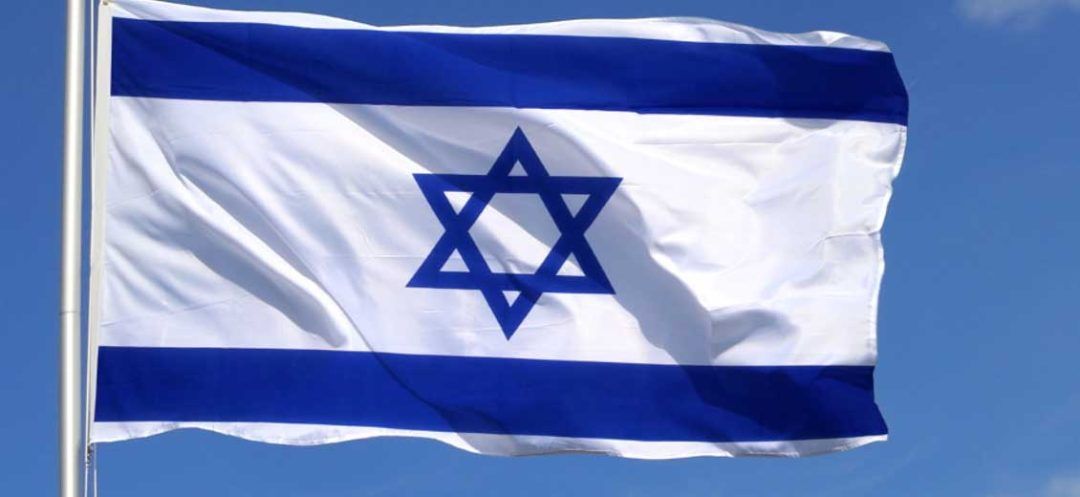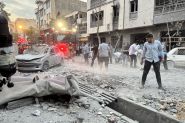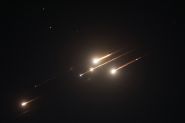- Home
- War in the Middle East
- Israeli Tank Fire 'Likely' Killed Reuters Journalist - Report

An Israeli tank crew who killed one journalist and wounded six others in Lebanon in October "likely" opened fire on them with a machine gun, an expert report said Thursday.
The strike in southern Lebanon near the Israeli border on October 13 instantly killed Issam Abdallah, a 37-year-old journalist for the Reuters news agency.
Six others—two more Reuters journalists, two from Al Jazeera, and two from Agence France-Presse (AFP)—were injured.
One of them, AFP photographer Christina Assi, 28, had to have a leg amputated.
An AFP investigation in December pointed to a tank shell only used by the Israeli army that was used in the attack.
And a separate Reuters probe, including initial findings from the Netherlands Organisation for Applied Scientific Research (TNO), found that two Israeli tank rounds fired from the same position across the border were used.
In its final report on Thursday, TNO said analysis of audio picked up by an Al Jazeera video camera at the scene showed the reporters also came under fire from 0.50-caliber rounds of the type used by the Browning machine guns that can be mounted on Israel's Merkava tanks.
"It is a likely scenario that a Merkava tank, after firing two tank rounds, also used its machine gun against the location of the journalists," it said.
"The latter cannot be concluded with certainty as the direction and exact distance of (the machine gun) fire could not be established."
AFP Global News Director Phil Chetwynd renewed his call for a thorough investigation to be conducted by the Israeli military and made public.
"The TNO report that strongly suggests the journalists came under sustained machine gun fire adds more weight to the theory that this was a targeted and deliberate attack," he said.
Rights groups Amnesty International and Human Rights Watch concluded that the first strike was most likely a tank round fired from Israel.
They said the journalists had been clearly marked as such, and that the deadly strike merited a "war crimes" probe.
Israel's army responded that the incident occurred in an "active combat zone" and is under review.
With AFP
The strike in southern Lebanon near the Israeli border on October 13 instantly killed Issam Abdallah, a 37-year-old journalist for the Reuters news agency.
Six others—two more Reuters journalists, two from Al Jazeera, and two from Agence France-Presse (AFP)—were injured.
One of them, AFP photographer Christina Assi, 28, had to have a leg amputated.
An AFP investigation in December pointed to a tank shell only used by the Israeli army that was used in the attack.
And a separate Reuters probe, including initial findings from the Netherlands Organisation for Applied Scientific Research (TNO), found that two Israeli tank rounds fired from the same position across the border were used.
In its final report on Thursday, TNO said analysis of audio picked up by an Al Jazeera video camera at the scene showed the reporters also came under fire from 0.50-caliber rounds of the type used by the Browning machine guns that can be mounted on Israel's Merkava tanks.
"It is a likely scenario that a Merkava tank, after firing two tank rounds, also used its machine gun against the location of the journalists," it said.
"The latter cannot be concluded with certainty as the direction and exact distance of (the machine gun) fire could not be established."
AFP Global News Director Phil Chetwynd renewed his call for a thorough investigation to be conducted by the Israeli military and made public.
"The TNO report that strongly suggests the journalists came under sustained machine gun fire adds more weight to the theory that this was a targeted and deliberate attack," he said.
Rights groups Amnesty International and Human Rights Watch concluded that the first strike was most likely a tank round fired from Israel.
They said the journalists had been clearly marked as such, and that the deadly strike merited a "war crimes" probe.
Israel's army responded that the incident occurred in an "active combat zone" and is under review.
With AFP
Read more



Comments